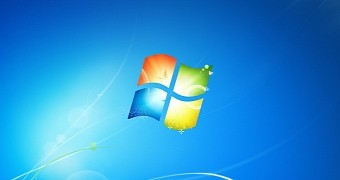Microsoft is going to put an end to sales of new PCs running Windows 7 on Friday, thus forcing OEMs and partners to finally abandon this particular OS version and switch to a newer release, such as Windows 8.
While this doesn’t come entirely out of the blue, as Microsoft has already reminded of this deadline on several occasions only in the past 12 months, analysts believe that many users might actually feel a bit confused about the company’s decision to pull the plug on Windows 7 PC sales.
Patrick Moorhead, principal analyst at Moor Insights & Strategy, has told InfoPackets in a short statement that Windows 7 PCs are almost nowhere to be found these days, especially because the inventories have already been cleared out at most retailers.
“They are shipping a clear majority of their consumer PCs with Windows 8 already,” Moorhead adds.
OEMs now selling the last units
As we reported to you yesterday, most companies that are still having Windows 7 PCs in stock are now trying to sell them at discounted prices, obviously in an attempt to switch to devices running a newer Windows version.
Dell is just one of the examples, but the same applies to several other large companies, such as HP, all of which are trying to meet the deadline and sell all inventories by Friday.
And still, if they do not manage to sell everything, it’s not the end of the world. Microsoft will allow retailers to clear out inventories completely, so there’s no real rush to get rid of all PCs running Windows 7. The only problem is that the more days they keep the PCs in stock, the bigger the financial impact, so bigger discounts might be needed after a while.
Not really a tragedy
The October 31 deadline doesn’t mean that Windows 7 PCs will disappear completely, as the Professional version of the operating system will continue to be available on new computers.
At the same time, Microsoft clearly wants and needs to push more buyers to modern OS versions, so ending sales of older releases pretty much makes sense.
Windows 10 is, however, the product that plays a really critical role in this regard, as Microsoft expects it to convince more users to upgrade and thus get them off Windows 7 easier than it’s happening right now. Of course, it all depends on how affordable Windows 10 is going to be, especially when considering that many have only recently moved to Windows 8.1.

 14 DAY TRIAL //
14 DAY TRIAL //